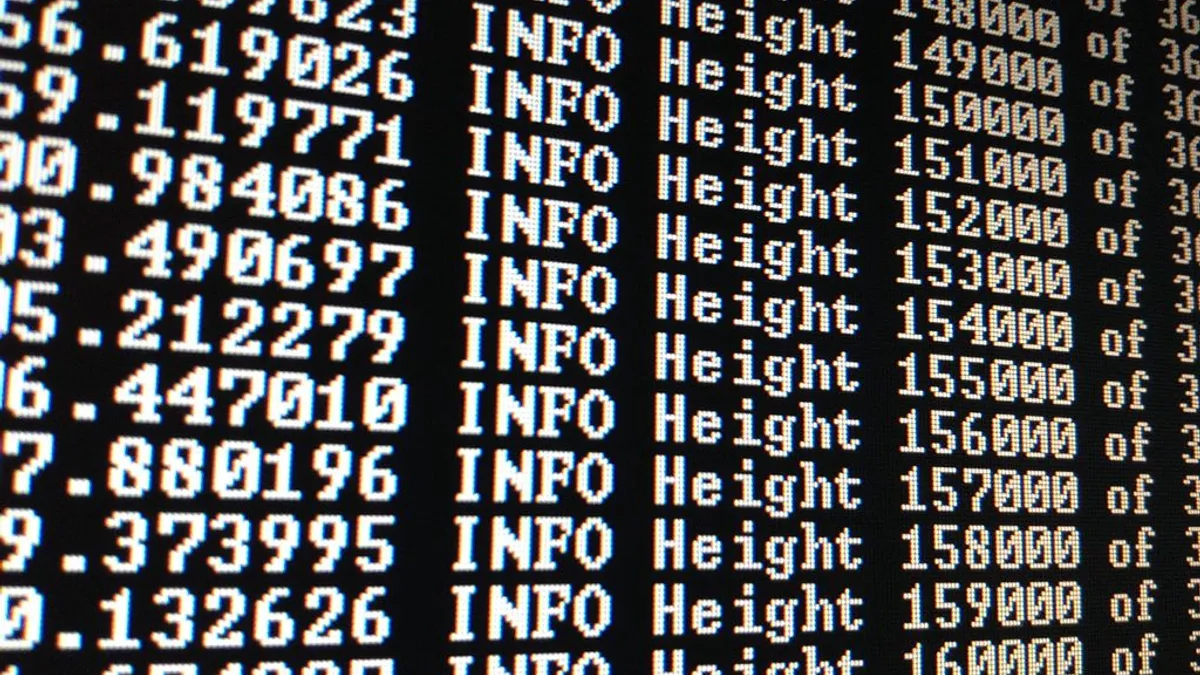Dive Brief:
- Walmart, Kroger and numerous food suppliers have joined with IBM on a blockchain implementation meant to improve food traceability and to test the budding technology across a widespread rollout, according to Fortune.
- The companies hope blockchain will improve their data management systems — which include numerous stakeholders across a complex supply chain system, and are often managed using disparate software programs, handwritten logs and other outdated formats. In the case of foodborne illness outbreaks, blockchain promises to help companies track products in a matter of seconds rather than days.
- Walmart has run two recent blockchain initiatives with IBM. The first tracked Chinese pork, while the second followed Mexican mangoes through the supply chain. Frank Yiannas, Walmart’s vice president of food safety, helped promote blockchain to others in the industry after his company’s successful trial. “We were so encouraged that we really quickly started reaching out to other suppliers and retailers as well," he told Fortune.
Dive Insight:
After coming to prominence as the technology behind online currency Bitcoin, blockchain has found relevance in everything from equities trading to online shopping. Now, food suppliers and retailers have turned to blockchain as a way to track and manage their incredibly complex supply chains.
Walmart’s limited test of the technology, the results of which were revealed at its annual shareholders’ conference earlier this year, showed considerable promise. Now the mega-retailer, along with leading grocery company Kroger and suppliers like Nestle, Unilever and Tyson Foods, are participating in a widespread test that will help the companies and IBM hone blockchain’s wider implementation. In the not-too-distant future, blockchain could become the digital language that allows companies throughout the industry to communicate with one another.
What makes it effective? Blockchain works by grouping data into individual “blocks” that are secure, inalterable, and can be easily distributed. When it comes to food safety and traceability, blockchain promises to replace the paper records and manual input systems retailers have traditionally relied upon with a fast, automated program.
A digital-first system could be a potent tool during product recalls, which happen daily for retailers nationwide. Knowing exactly where a product has been distributed, and in what quantities, could help stores pull products from shelves faster. Blockchain could also help retailers and regulators pinpoint the source of foodborne illnesses. Its ability to instantly lay bare every step in the supply chain, meanwhile, could help improve logistics and reduce food waste.
According to the Centers for Disease Control, 48 million people get sick each year due to foodborne illness. The U.S. Department of Agriculture estimates that 10% of the food that hits store shelves each year goes to waste.
Blockchain could also help companies cut down on food waste, make their supply chains more efficient, and even provide shoppers with more information about products they buy through consumer-facing initiatives. As Yiannis recently noted in a company promotional video, “We don’t believe that traceability is the goal. We believe that transparency is the ultimate goal.”









